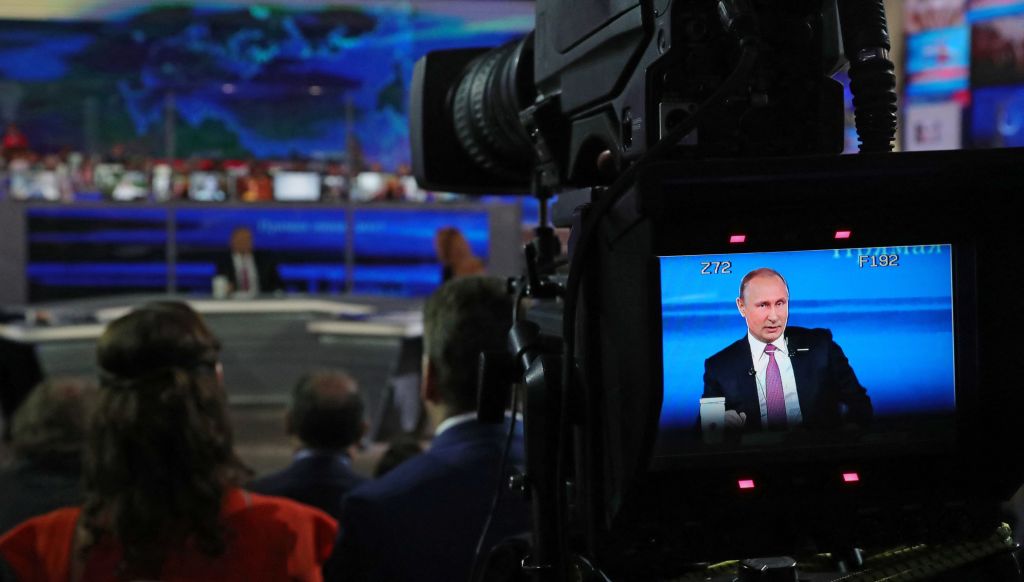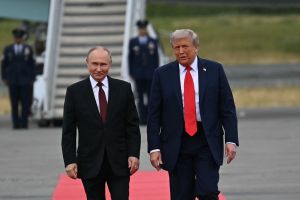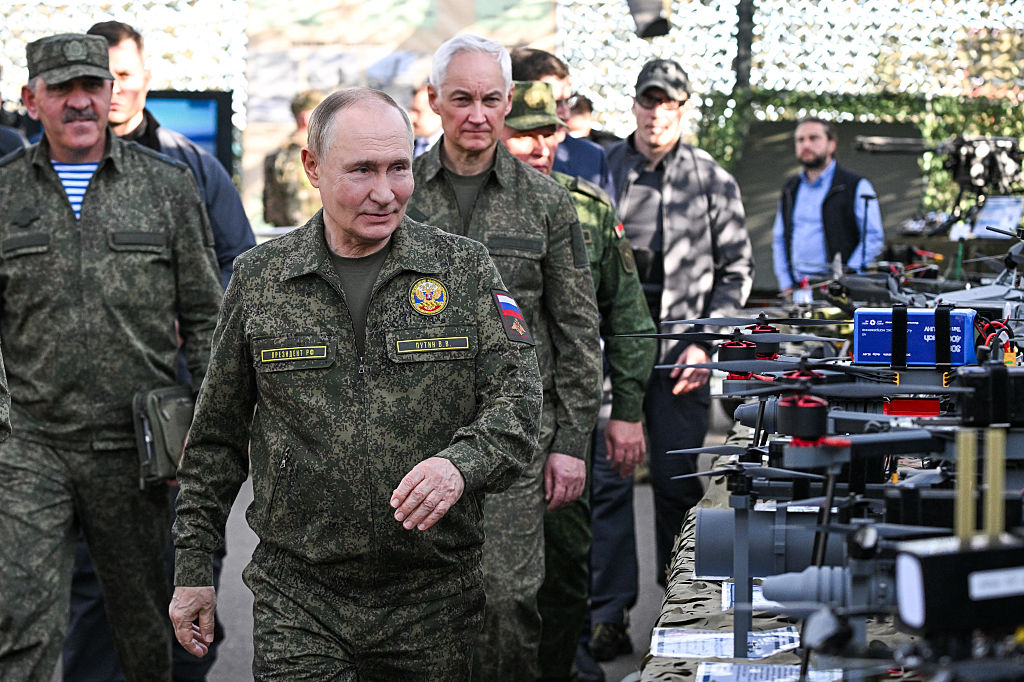The biggest tragedy of the Russian invasion of Ukraine is, of course, the loss of thousands of Ukrainians, who have been killed because of Vladimir Putin’s insane and horrific actions. But alongside that horror are many other alarming developments. One of them is the near-total suppression of the free flow of information in both Russia and China.
As you have likely read, Putin cast the war with Ukraine not as the unprovoked invasion it is but, laughably, as a “special military operation” for “de-Nazifying” the Ukrainian leadership. Russia swiftly passed a law greatly enabling Putin’s propaganda campaign. “Russians could face prison sentences of up to fifteen years for spreading information that goes against the Russian government’s position on the war in Ukraine,” reported the Associated Press, “a move that comes as authorities block access to foreign media outlets.”
Because of this, and the regime’s various other formal and informal means of controlling what information Russians have access to, there is now widespread misunderstanding among Russians about what is going on across the border. As the New York Times has reported, this has led to the perverse scenario in which some Russians have been telling Ukrainian family members that there’s no major war going on — even as those relatives are being bombed.
As if seeking to outdo Russia’s dystopian censorship efforts, China has flexed its own considerable misinformation muscles to stymie its citizens’ ability to access impartial coverage of the conflict. Even as Beijing has sought to portray itself as neutral, its state-run media campaign has been anything but. After evaluating a giant database of Chinese broadcast and social-media content disseminated during the first eight days of the war, CNN determined that “China has largely adopted Russia’s talking points, actively helping the Kremlin disseminate its version of the bloody war to millions here and beyond,” as correspondent David Culver reported from China.
Taken together, the policies and recent actions of these two deeply authoritarian regimes mean that more than 1.5 billion people have been all but cut off from accessing accurate information about the war — and, in most contexts, cannot publicly express pro-Ukrainian or anti-Russian sentiments without serious fear of persecution.
These brutal crackdowns got me thinking about the free-speech discussion in the United States. In recent years, it has become increasingly popular in progressive circles to express skepticism that free speech is worth defending as a principle. After all, there are a lot of bad people out there: racists and vaccine-deniers and assorted reactionaries. After all, Donald Trump got elected. Clearly it’s time for a clampdown, the thinking goes, whether through tightening the norms surrounding speech (perhaps by firing more people for saying disagreeable things), attempting to codify into law free-speech-skepticism to the extent the First Amendment will allow it, and, perhaps most popular of all, encouraging major platforms like Twitter, Facebook and Instagram to take a more active role in combating “harmful” speech and “misinformation.” (Quote marks are needed around those contested terms, which are often deployed disingenuously.)
While there is certainly fierce debate over this — we do still have that in this country — my sense is that the free-speech-skeptical position is now dominant among media and academic types, and there is great enthusiasm for, in effect, public-private partnerships in which the government encourages social-media platforms to clamp down on unacceptable speech, sometimes providing them guidance on how to do so (as in the case of alleged Covid-19 misinformation).
But if it is possible to identify even the tiniest upside to the recent clampdowns in Russia and China, it is surely that they help to reveal just how blinkered and foolish the prevailing US mood is. Historically speaking, it is quite rare to have as many free-speech rights as Americans have, and it’s all too easy for those rights to be eroded. To see so many liberal journalists and academics actively calling for exactly that to happen is quite shocking.
Though perhaps it shouldn’t be. We human beings tend to overextrapolate from our own experiences. If you grew up having no reason to fear government persecution for expressing unpopular beliefs, it’s easy to take that freedom for granted. As Americans, we’ve likely gotten complacent on this front precisely because we’ve had it so good for so long. “That could never happen here” is an easy sentiment to succumb to. As is the idea that only truly “bad” people, the ones with the really harmful ideas, will be punished should new speech restrictions descend upon us.
But as today’s shocking foreign examples show, when the authorities have the power to restrict access to, and the expression of, certain beliefs, they will wield it ruthlessly. Interestingly, the importance of social media and other forms of online communication — the very forces held up as reasons we need to get more serious about restricting free speech — are showing us exactly why we should be opposed to doing so.
The burgeoning tech-dystopias in Russia and China are all the more reason to err on the side of robust free speech laws and norms — to not budge an inch. Unfortunately, there’s been a lot of budging lately. Let’s hope an awful situation overseas at least serves as a wake-up call here at home.
This article was originally published in The Spectator’s May 2022 World edition.

























